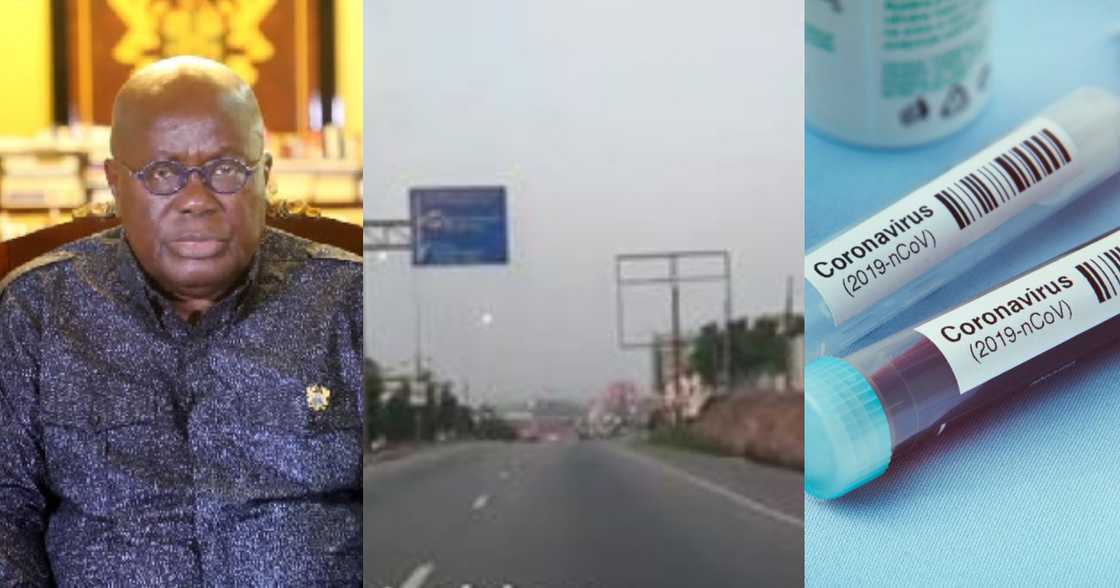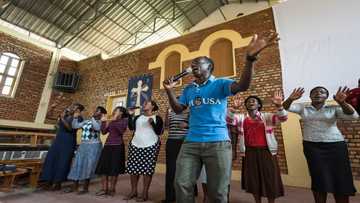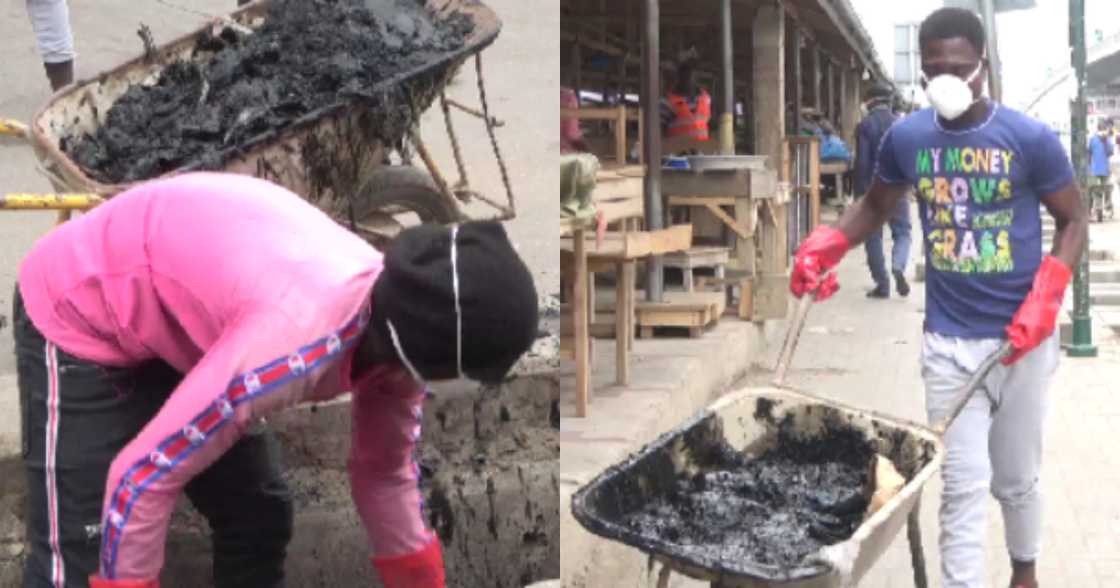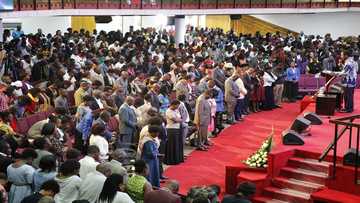Today in History: Partial lockdown took effect in Accra, Tema, Kumasi due to COVID-19
Exactly a year ago today, the ever-busy streets of the Greater Accra Region, especially the central business district of Accra, Tema, and Greater Kumasi were quiet with no human and vehicular movement.
OUR MANIFESTO: This is what YEN.com.gh believes in
Not even when the rest of the world was asleep would you find these streets as empty as they were during the lockdown.
The lockdown which was announced by President Nana Addo Dankwa Akufo-Addo on March 27, 2020, to take effect from March 30, 2020, brought a lot of uncertainties.

Source: UGC
One thing that the government was sure about was the fact that the lockdown was going to help curtail the spread of the coronavirus disease which was fast spreading.
Ghana recorded its first case of coronavirus otherwise known as COVID-19 on March 12, 2020, after two people entered the country through its air borders with the virus.
One Ghanaian and Norwegian were identified as carriers of the deadly virus which was first found in the Wuhan Province in China.
As at the time the lockdown restrictions were announced in the President's address to the nation, Ghana’s coronavirus case count had risen from 137 to 152 between the period of March 12 to March 27 to the announcement of the partial lockdown and its commencement on March 30, 2020.
Prior to the announcement of the lockdown restrictions, schools were closed, churches, mosques, pubs, beaches, and other places that required congregation were also closed.
During the two-week partial lockdown, citizens in affected areas including Kasoa were advised to only leave their homes in search of essential items or activities.
However, some people were allowed to move around due to the essential services they were providing to the nation.
These include persons aligned to the production, distribution, and marketing of food, beverages, pharmaceuticals, medicine, paper and plastic packages, environmental and sanitation activities, road and railway construction workers, members of the security agencies, workers at fuel stations, and staff of utility, telecommunications, e-commerce, and digital service providers.

Read also
Easter Celebrations: Ghana Police bans air conditioners in churches, restricts services to 2 hours
There was however no movement of inter-city vehicles like commercial buses popularly known as trotro and taxis as well as aircraft for private or commercial purposes.
There was generally heavy police presence in the town to ensure people adhere to the president's directive.
Those who flouted the directive by leaving the comfort of their homes were not treated lightly.

Source: Facebook
Interestingly, typical of Ghanaians, the lockdown was preceded by panic buying in major business centres in the affected areas.
Markets were overwhelmed by customers and gas filling stations also had to deal with heavy human traffic by customers who needed to have their cylinders filled.
The government also tried its best to feed the homeless who had no homes during the pandemic.
The lockdown however had a toll on the finances of the country as well as individual business owners.
On the flip side, some people had a turnaround in their business and also made some good fortunes.
Exactly a year after the lockdown, most businesses are still counting their losses and trying to pick up the remnants of the adverse effects the lockdown created

Read also
Do not hold Easter crusades, conventions; church services should not exceed 2 hours - Police warns
Enjoy reading our stories? Join YEN.com.gh's Telegram channel! Never miss important updates
Download YEN's news app on Google Play now and stay up-to-date with major Ghana news.
Source: YEN.com.gh


